Sentences often come to me during my son’s bedtime routine. I turn off the lights and typically lie on my side with my body facing his. Our soundtrack is a soft murmur vibrating from a white noise machine, and it helps me drift into a lower frequency. My mind slows enough so that I can begin to think again, probably for the first time all day. Without notifications in hand or a schedule to follow, I let my thoughts drift as my son drinks. The sentences, which sound exciting to me at the moment, inevitably come, but I have nowhere to write them down. Will I remember this one? Or even better, this one? Last night, like many before it, the ideas were gone by the time my feet hit the hardwood floor at the end of our second-story staircase. Tonight, however, I am holding on to my thoughts as powerfully as I hold on to my son. I walked immediately from his room, down the stairs, and to my office, and I wrote down this question: Can I be both an unselfish mom and an artist?
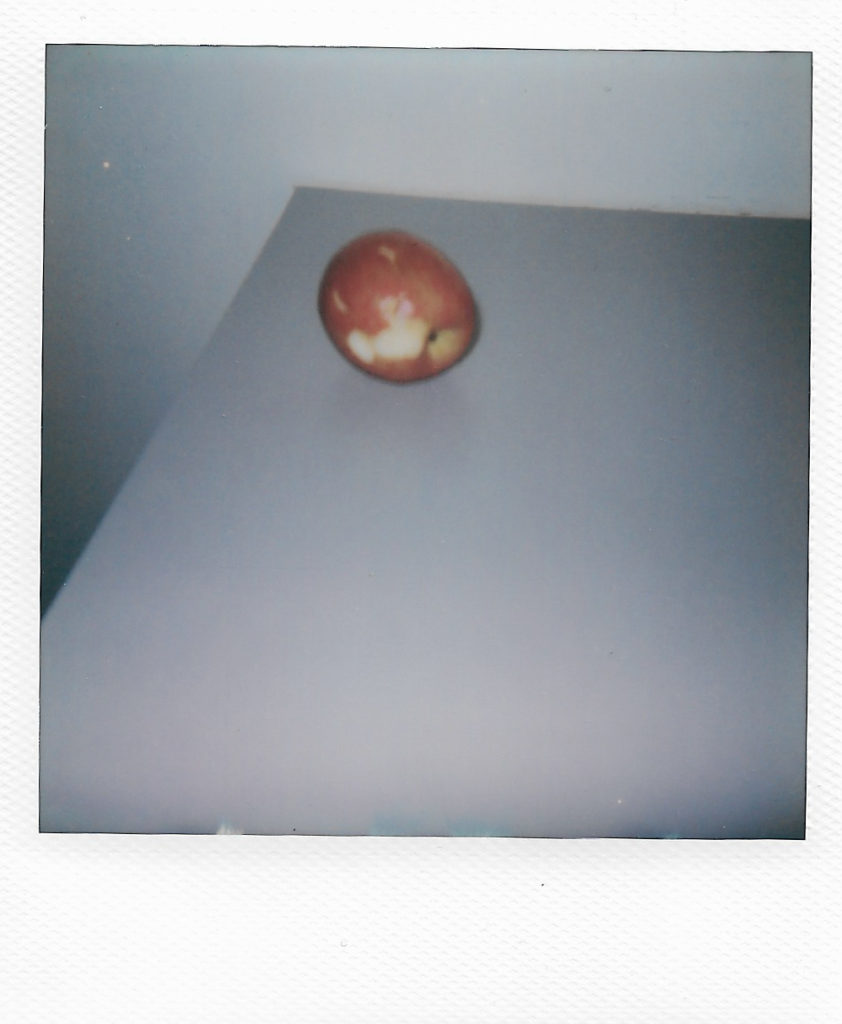
You may be thinking that I can—it’s 2022, and moms can be anything. On the other hand, you may firmly believe that a mother should be solely devoted to her children and have no other priorities. The answer is more complex than yes or no. In an article for The Atlantic, “How Motherhood Affects Creativity,” Erika Hayasaki writes, “It may be one of the most uncomfortable questions facing any woman wondering if it is possible to balance both identities. When it comes to merging motherhood and a creative life or fulfilling career, one message resounds: They are incompatible.”
The physical act of becoming a mother did not feel creative to me; it was primal. My pregnancy was not a source of inspiration. I had imagined documenting my days and creating a collection of self-portraits in praise of my changing body—neither happened on a thoughtful level. Nausea during my first trimester made anything other than lying horizontal nearly impossible. Then in my second trimester, I became hyperfocused on preparing for birth: I read Ina May Gaskin’s Guide to Childbirth, decided on midwifery care, hired a doula, and listened to breathing exercises. I forgot to make space to prepare for the transformation that motherhood would mark in my own life, which was already 32 years lived by this time.
The rupture resparked my creativity. After my son was born, I started memorializing sounds and recording voice memos in my dark bedroom as I fought to stay awake during nighttime feedings. The act of pressing the record button gave me a sense of accomplishment. When he started to run, I began recording the drumroll of his footsteps melodically, rhythmically thudding down the hallway. My camera has also come back to me in my home life as a way for me to remember the most important chapter of my life so far: my son’s childhood.
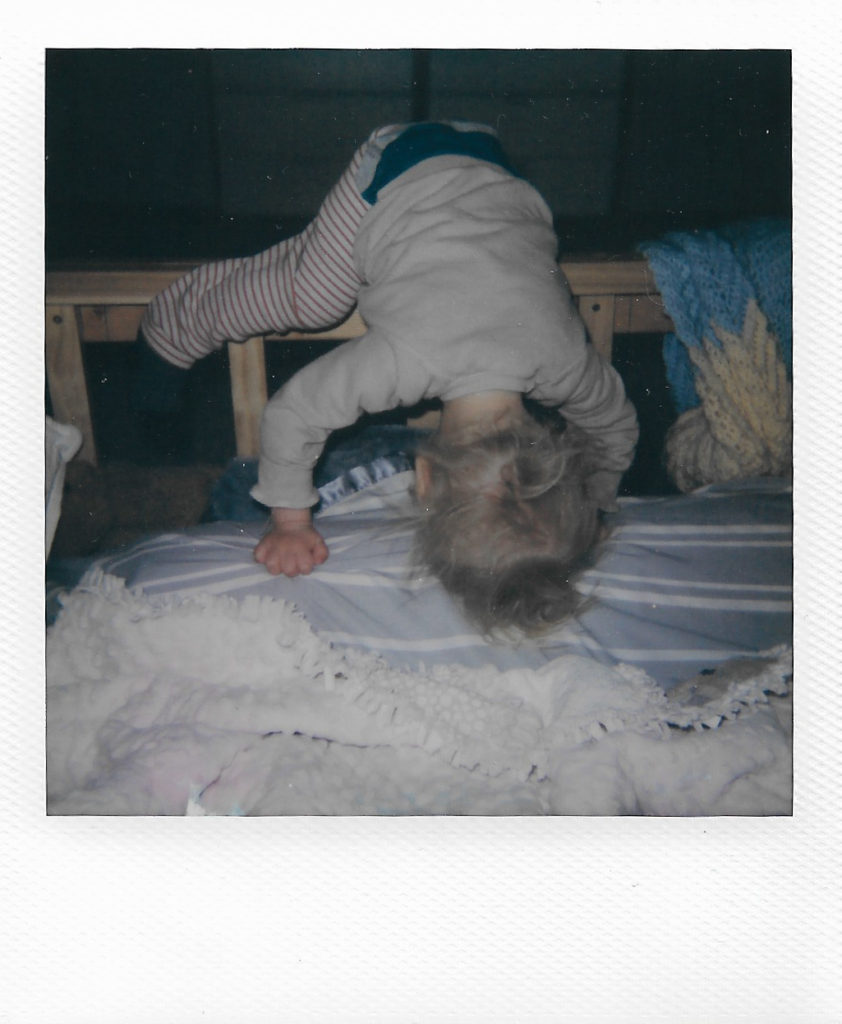
My artwork has taken many new shapes—the most significant change is that now most of it is only for myself. Somedays, I record a voice memo during a walk with my son, which I will eventually cut into a radio documentary for him. Other days, I photograph a half-nibbled red apple left on my counter by my distracted toddler or type half a dozen unfinished paragraphs about nothing and everything on my phone. I have also taken up late-night writing from bed—a sentence here and a half-completed thought there. Most often, I feel like I am doing everything and nothing well.
Later in the Atlantic piece Hayasaki writes, ‘”In this period of extreme pressure, when mothers are going through massive changes in their bodies, diets, and hormones,’ [neuroscientist Rex] Jung hypothesized, ‘that is when creativity should emerge as a highly adaptive reasoning process.’ The irony is you have this wealth of creativity, it’s like you’ve been plugged in, but you can’t do the work because the child is there, taking from you.”
For the first six months of my son’s life, I desperately tried to recover the person I was before becoming a mother: I worked in a weary haze trying to pitch an essay for a new book; I scheduled a sunrise photo shoot for an expecting couple at Lake Michigan; and the very next week, I scheduled another shoot at a nearby park and asked my husband to join me with our son, just in case I needed to nurse him. About seven minutes into the shoot, my husband—squinting into the sun while holding our crying baby—told me, “I will never do this again.” I was trying so hard to revive my pre-baby self that I did not give myself the respect to get to know who I was becoming. After months of resistance, at six months postpartum, I decided to stop putting pressure on myself to create, book clients, or do anything other than spend time with my son or with myself. This chapter of reprieve lasted almost a year.
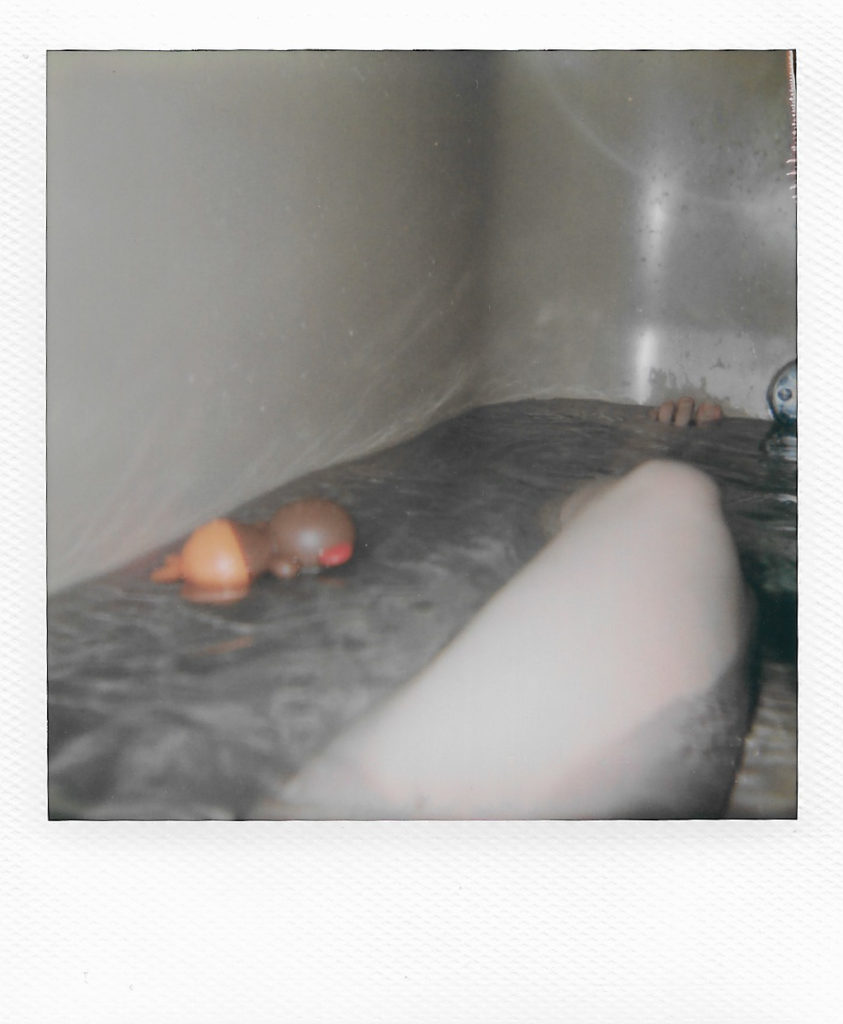
In an article published by The Cut, “A Portrait of the Artist as a Young Mom” Kim Brooks writes, “The idea that writers, artists, inspired and creative people make bad spouses, parents, homemakers, partners is nothing new. It’s a trope that has served the (usually male) writers of the canon well.”
Brooks is not wrong. Since having my son, I have felt guilty for prioritizing my writing or photography. I have always been a spontaneous and sometimes impulsive person. I love an open-ended day—coffee first, the unknown next. If I feel like writing, I want to write. If I feel like setting up a photo studio in my home, I want to create images. Impulsivity does not always pair well with domestic life.
My son woke up from his afternoon nap on a recent Sunday, and I got the itch to take photos. I decided I would set up a backdrop in my bedroom and photograph portraits of my son and me together. Since my husband was home, he could watch our son while I set up the backdrop, and then he could help press the shutter on my camera, so I did not have to use the self-timer. After setting up the canvas backdrop, I needed to use the washroom, so I set my son down in the kitchen while my husband put dishes into the dishwasher. Our son went over to the dishwasher and grabbed a dirty utensil out of the tray. He then proceeded to fall backward into a door. Screams. Tears started flowing. “Why did you leave him in here if you could see I was busy?” my husband said. Leaving my son in the kitchen while one of us is doing chores is not unusual. “Why did you decide to take photos today, out of nowhere? You’re so impulsive.”
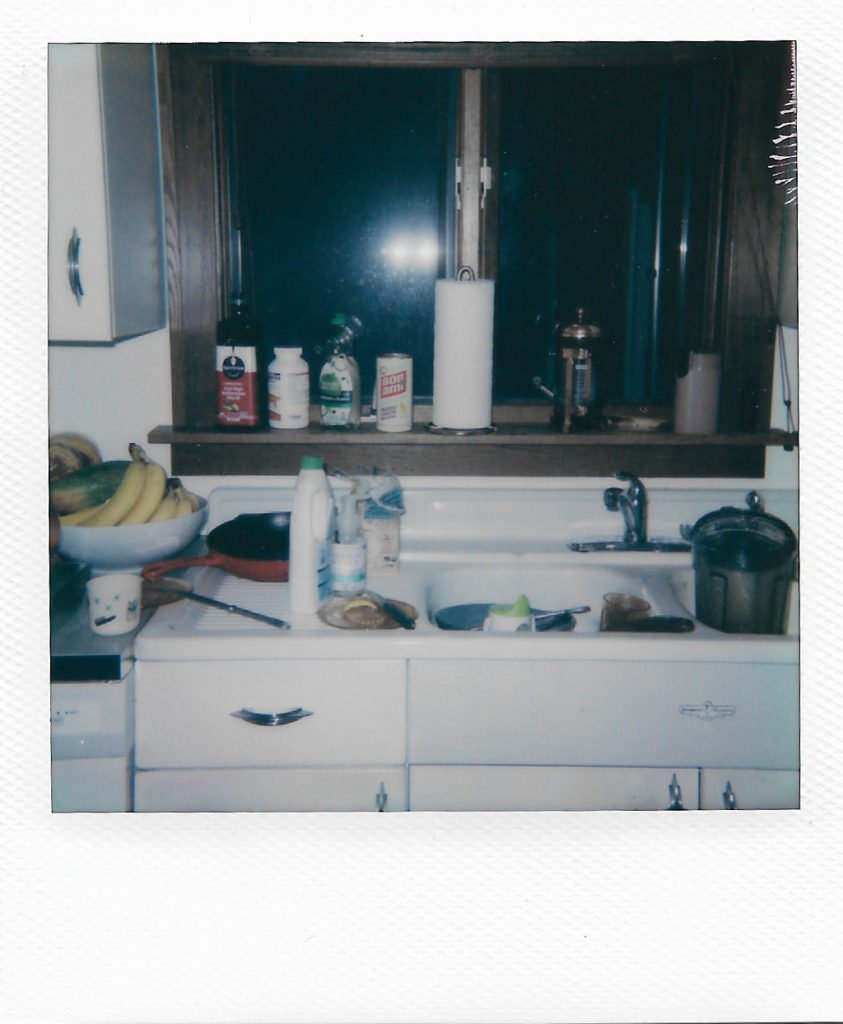
He’s right; I can be impulsive. It was not me placing our son in the kitchen that upset my husband; it was the disregard for our routine that sparked a reaction. Does being a parent mean you can no longer do anything spontaneously? When you are a parent, creating art is seen by many as self-indulgent—regardless of whether commissioned work or a hobby, both of which, in my opinion, hold equal importance if they bring joy to the parent’s life.
Brooks continues in her essay, “I don’t want to believe it—that parenting itself makes art hard, that you must always sacrifice one for the other, that there is something inherently selfish and greedy and darkly obsessive in the desire to care as much about the thing you are writing or making as you do about the other humans in your life. What parent would want to believe this?”
Although I still crave flexibility at nearly two years postpartum, I have learned that I love creating from within my home life, like during a typical Sunday spent with my son. Since I was little, I have noticed that I see the world around me as it would look in a photograph or film. As I experience a moment, I picture it from within the camera frame, even if I don’t have my camera on me.
And this is what we do: my son and I. We create art out of our days together. Since my son was born, I am no longer only me, so I am learning to find creativity in both of us to maintain an art practice. Self-expression through art brings value to my experience with motherhood. Photography and writing are how I make sense of the tremendous mess in my mind on any given day. I bottle up creative energy on a gradual continuum, and it has to come out somehow, and creating something is the best output because if not, I become irritable. For many mothers, I can imagine, this is true. We take on the weight of our families and try to do it all. Whether as a hobby or career, creating art is a place you can go, emotionally, that’s all your own—a quiet room to remember ourselves.
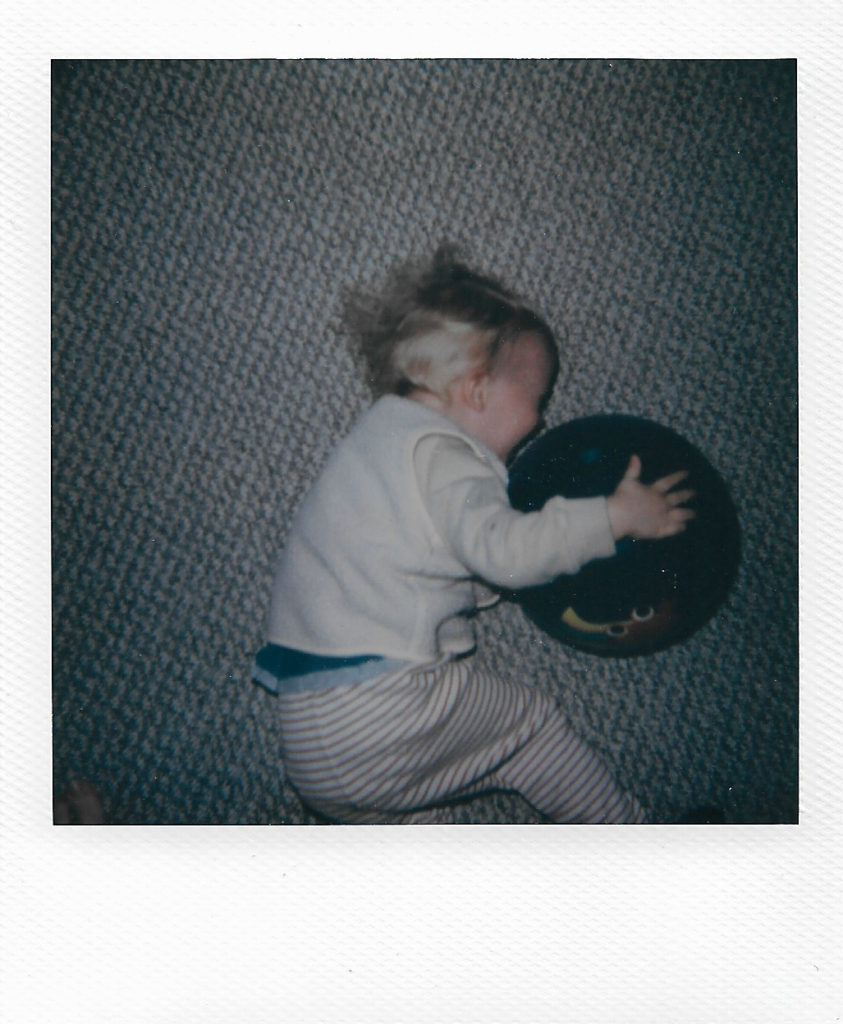
Ten years ago, a scattered and less emotionally healthy version of myself may have said I probably would not have kids. Now, a majority of my personal and client creative work focuses on motherhood. I am growing into a person—photographer and writer included—I am proud of because of my son.
